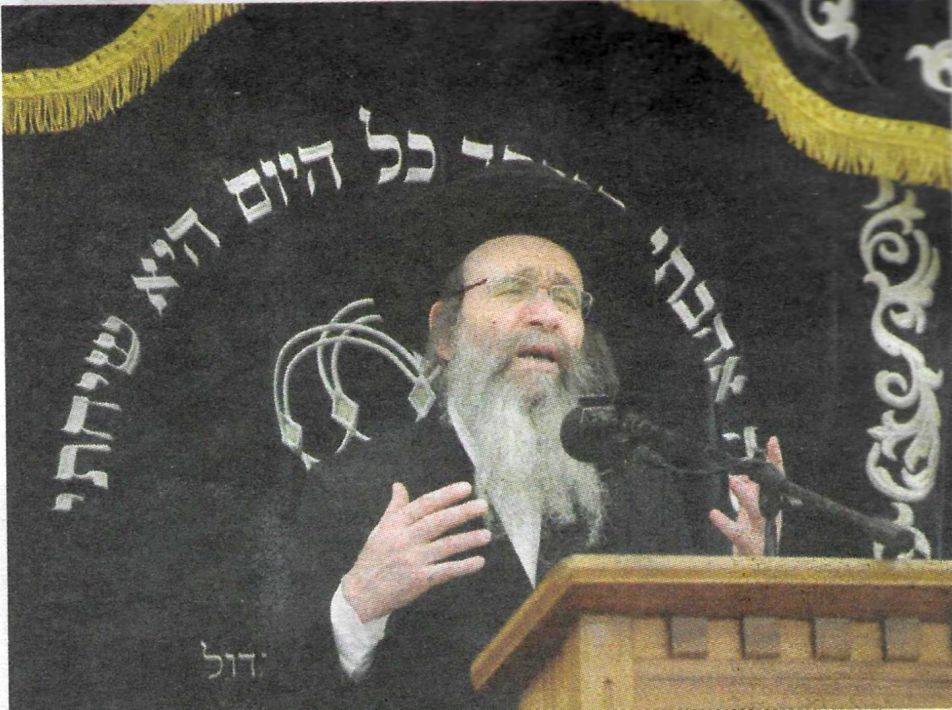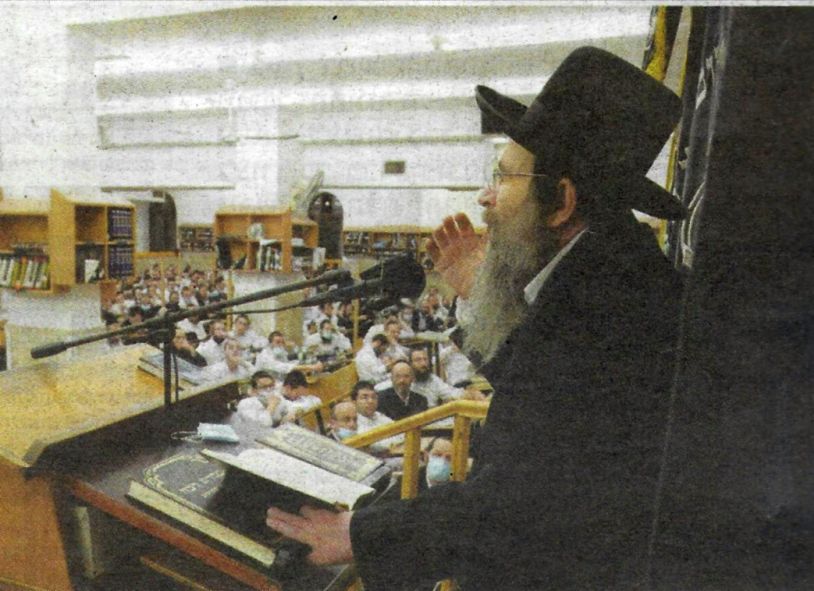
We are already two weeks into Elul, the month of mercy, the days where the prayer-wish is that "Your right hand be outstretched to receive the penitent." Our task during this period is to bear in mind and realize: "Let us scrutinize our way and inspect."
These were the opening words of HaRav Binyomin Finkel. Klal Yisroel truly feels an arousal in this month but the evil inclination throttles our hearts.
We are familiar with the words of HaRav Yisroel Salanter regarding the fear and awe of the month of Elul. We must couple the fear of the judgment with the hope of being acquitted in that judgment. But certainly we must not approach these days with indifference, he writes in a letter. Rather, we must examine in depth the import of that judgment.
Let us contemplate how many of us were healthy last Rosh Hashonoh, while today they are ailing and suffering. Indeed, how many are no longer with us. While we must not dwell overly on the harsh facts, yet, still we must register them and be aroused, rather than dismiss them coolly. One who lives with indifference is showing a lack of emunah.
Therefore, the very first thing we must do is to open our hearts to at least feel that we are being judged. Only afterwards are we to contemplate the fact that our Heavenly Father is really judging us mercifully.
In truth, every Jew harbors a fear of judgment. It is known from Chazal that if a person suddenly experiences an awakening on Rosh Hashonoh, he should realize that indeed, he is then being judged, which explains that feeling as one of fear that now Hashem is in judgment of the world.
The awareness of the approaching judgment could be seen in gedolei Yisroel throughout the ages. Surely by the masters of Mussar but similarly by all of our Torah leaders. It is told of one of the Admorim of Belz who covered himself with a winter blanket during Elul to ward off the cold he felt during this period because of the upcoming judgment.

Q. In this present month of Elul, after all the painful events we experienced during the past year, should we feel all the more need for awakening?
A. Certainly! Look and contemplate the words of "Unesane tokef" and all of its dire forecasts. How many of them have we experienced as being the result of the judgment on last year's Rosh Hashonoh!
Who by water? Just think of the many babies which drowned in swimming pools, while not to forget the floods of this past year.
Who by fire? Bear in mind the fires world wide and the fires which raged in Yerushalayim.
Who by earthquake? We hear about the many disasters that occurred as a result of earthquakes.
Who by plague? From which we are still suffering right now. We had thought to have the plague behind us but it has reared up in full force.
Who by suffocation and who by stoning? The terrible occurrence in Meron, by Karlin, in Miami... And the disaster of yeshiva students aboard a plane that crashe?
Who shall become impoverished and who enriched? Who shall be tranquil and who [shall] suffer? All these events were decreed on Rosh Hashonoh and Yom Kippur of last year. No one can evade a judgment's decree.
It is written that on Rosh Hashonoh, all of mankind passes before Him like sheep, as is written, "...Who creates their hearts and understands all of their deeds..."
Judgment is divided in two: a general overall judgment and a personal one. We say, "You remember the events of the world and examine all the creations of yore. Before You are revealed all hidden events and numerous mysteries from the beginning of Creation. There is no disremembering before Your heavenly throne, nor is anything concealed from before Your eyes... And of the nations it is said - which to the sword and which for peace, which to famine and which to plenty. Creations are remembered for life and death. Who is not counted on this day?"
And then we say, "Fortunate is the man who does not forget You and a human being who strives for You, for those who seek You will never stumble nor those who are Your protected ones be ashamed forever." Hope is only for those who seek Him and exert themselves for Him.
Stop and think a moment: "Of the nations it is said: which to the sword and which to peace." There are nations where people murder one another, like in Syria — in the hundreds and thousands. Then there are countries where peace reigns.
"Which to famine and which to plenty." There are nations whose economy is stable and others which are on the brink of bankruptcy.
Individual people are also judged. "Men are counted... for life or death; who is not remembered for census on this day." True, a decree can always be nullified, but this is the time when judgment is passed, the opportune time to act so that the judgment be favorable.
The very fear of the judgment is helpful towards a favorable verdict, while even the very acknowledgement of the judgment is a factor in being judged positively. Similarly, one's subjugation and one's broken heart draws mercy to him.
Another factor is that one who submits himself also seeks reasons for being judged favorably, and prepares himself accordingly for Rosh Hashonoh and Yom Kippur. This, after all, is the very purpose of the month of Elul: so that we prepare ourselves as required, more than in previous years, that we examine where we have erred and the causes thereof, and how to prevent future stumbling.
What is a practical suggestion to prepare for the judgment?
Maran HaRav Chaim Shmuelevitz zt"l used to say that one should become a part of the community, and as a part of the community one can pass the judgment successfully. There is one aspect of this in become part of the community and then being part of the judgment of the community, but there is also an aspect of being one who is an important person for many who need him. To benefit the community does not mean only going out and saying drashot, although that is certainly a big achievement, but even an individual, through is good deeds and exemplary conduct, who creates an impression on others — by learning studiously, davening properly and not doing anything untoward including having unkosher gadgets, such a person whom people see and are inspired can also be someone who contributes to many.




